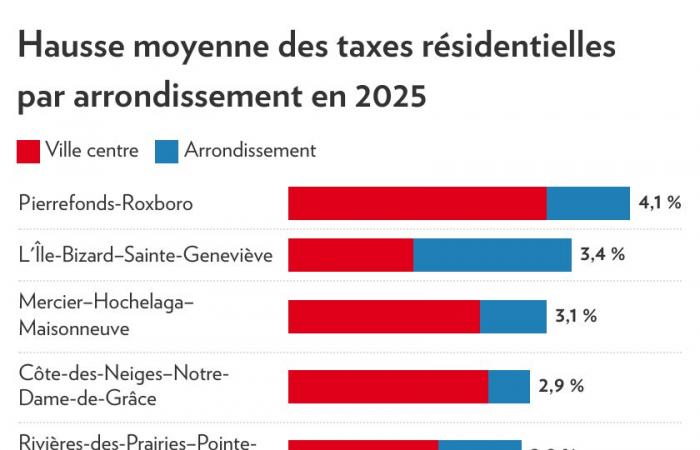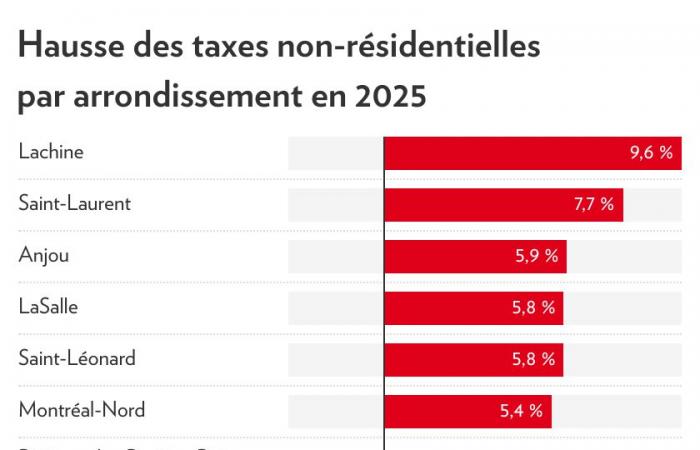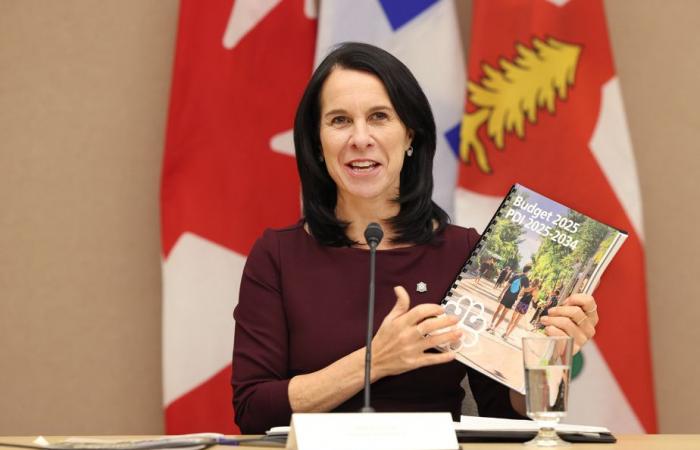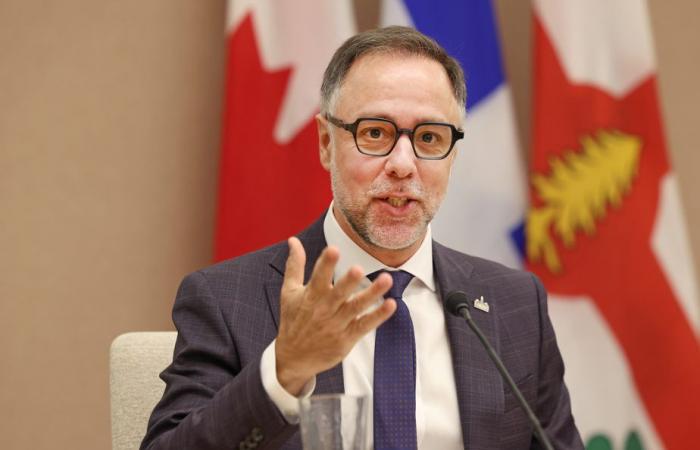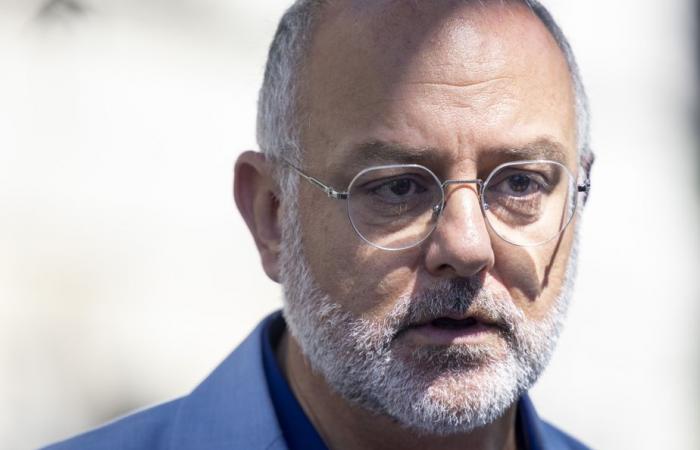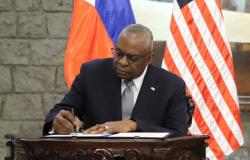Montrealers will see their municipal taxes increase by 2.2% in 2025. A less hefty increase than in previous years, which will still add $135 to the average bill for owners, while Valérie Plante’s administration chooses to invest record amounts in housing.
Posted at 11:06 a.m.
Updated at 6:40 p.m.
Calling all
Are you a residential or commercial owner in a district that is experiencing a sharp increase in taxes like Lachine or Saint-Laurent? Do you fear the impact of this increase?
Write to us
Valérie Plante’s administration had promised to limit the increase in residential taxes to 1.8%, but taking into account the increases voted in the various districts, the average growth totals 2.2% for residential buildings and 1.9 % for non-residential buildings.
In 2024, the increases were 4.9% on residential buildings and 4.6% on commercial buildings.
The municipal machine plans to spend 7.276 billion next year, or 4% more than this year.
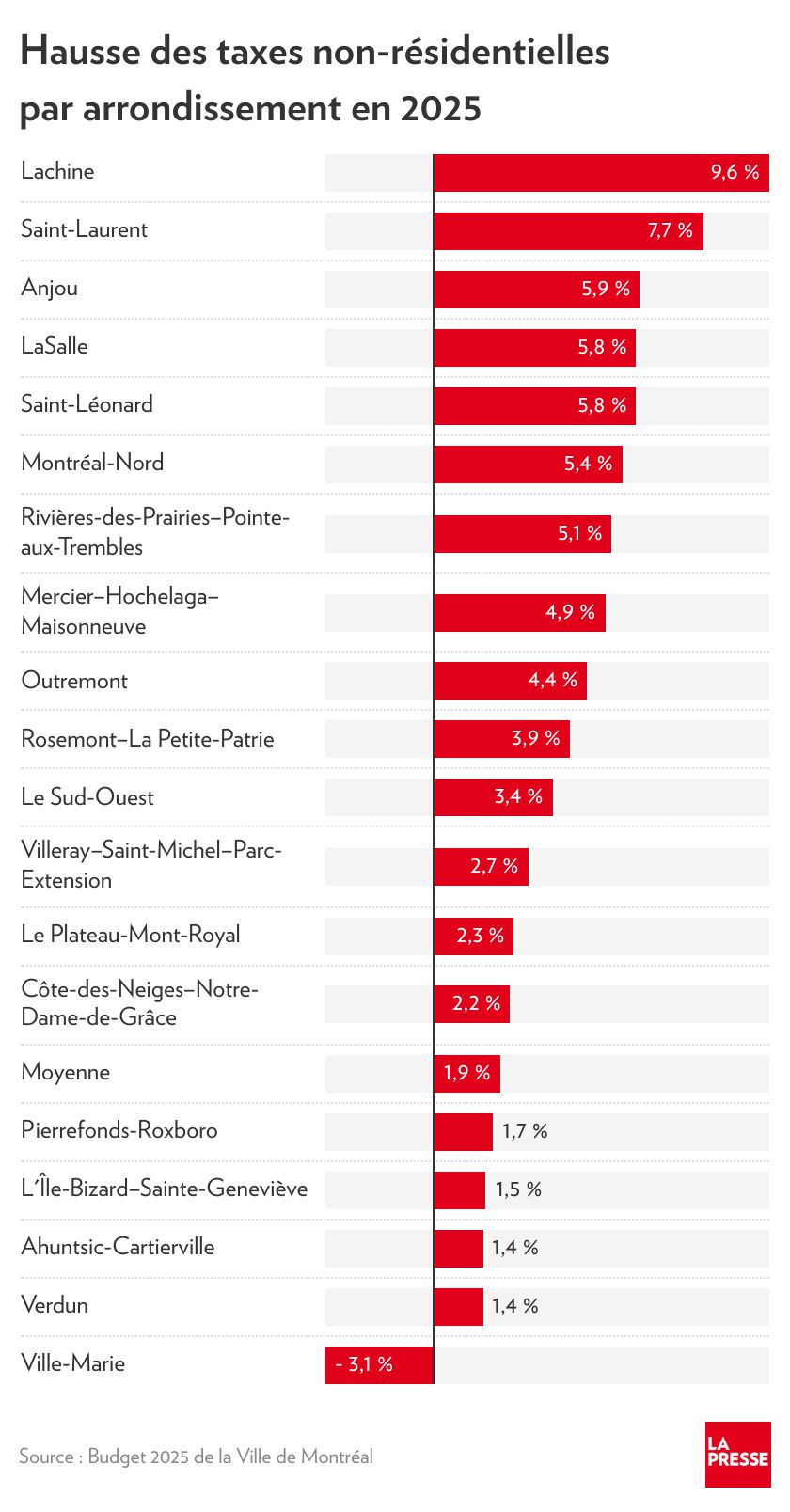
Housing priority
Why this increase above inflation? Because we must help the construction of housing, as requested by the population, replied Mayor Valérie Plante, Wednesday at a press conference, after the presentation of her 2025 budget – her last, since she will not seek a third term. in the municipal election of November 2025.
Housing has been our priority since day one and that’s not changing. Since the start of our mandate, our administration will have spent more than 1 billion on the construction of housing.
Valérie Plante, mayor of Montreal
This time, Montreal is increasing its spending by 45.7 million; they will reach 229 million in 2025, to encourage housing projects, by promoting affordable housing. Additional investments of 100 million over the next three years are planned in this sector.
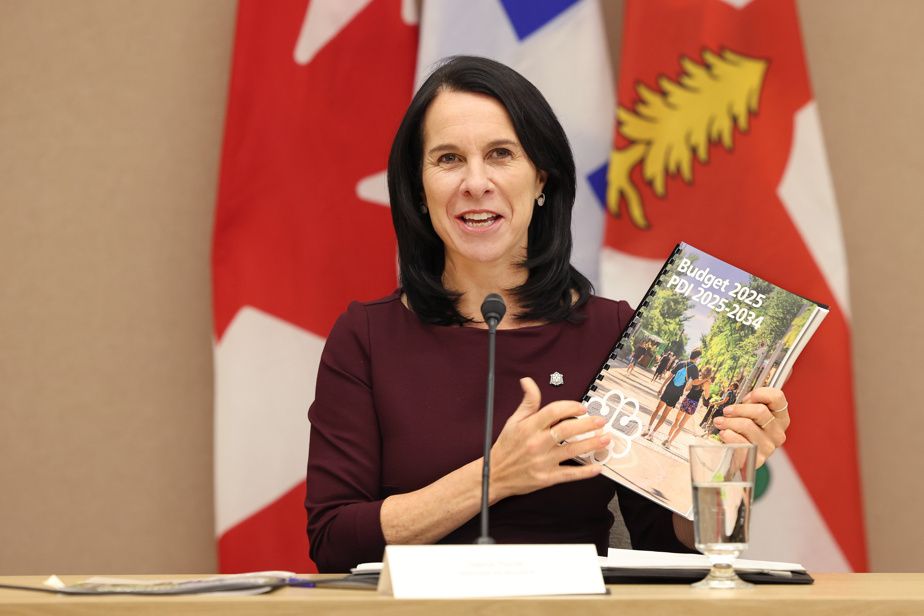
PHOTO ROBERT SKINNER, THE PRESS
Valérie Plante, mayor of Montreal
The City will also have to pay more for public transportation, road and infrastructure maintenance, as well as public safety. To offset these rising expenses, the administration has managed to save elsewhere.
“This budget was prepared in a spirit of rigor, but is ambitious to respond to the urgent priorities that the City must face,” underlined Mayor Plante.
“I am proud to leave the house in order and to offer the next administration solid programs to continue building an affordable, safe, dynamic metropolis adapted to climate challenges,” she declared.
Community organizations and homelessness
Next year, the City will offer financial relief of 10.5 million to approximately 700 community, cultural and sports organizations, which will no longer have to pay compensation that took the place of municipal taxes.
“This is one of the measures of which I am most proud,” revealed the mayor. This is direct aid to museums, theaters, social integration businesses, and those that offer cultural programming to families, sporting activities or services to newcomers. »
Organizations that offer roaming services will receive 3.3 million more, for a total of 10 million paid in 2025. An additional sum of 10 million is also planned to finance initiatives aimed at increasing the traffic and dynamism of the center -city.
Tax increases
To finance these initiatives, Montreal will take more money from the pockets of owners. The tax increases represent an additional bill of $135 for an average single-family home, $38 for an average condo and $132 for an average plex.
Since property values vary and districts also impose local taxes, the impact on tax bills is not uniform across the island. For example, home owners in Pierrefonds-Roxboro will see their bill increase by 4.3% ($165) on average, compared to 1.2% ($84) in Le Plateau-Mont-Royal.
Valérie Plante applauded her administration’s ability to keep tax increases at a reasonable level, comparing Montreal to Toronto, where increases will reach 9.5%, as well as Vancouver, where they will be 7.5%.
To boost its revenues, Montreal will give some teeth to certain taxes. First, that on vacant land will be doubled to generate additional income of around 24 million. Cities have been authorized to tax vacant land more since the adoption of Bill 392 in December 2023 in the National Assembly.
The tax on parking lots will generate additional revenue of more than 8 million, increasing from 30 to 38.7 million dollars in 2025. The City will now tax all parking lots of 5,000 square meters and more – a change that however, excludes the city center and its surroundings. This threshold was until now set at 10,000 square meters. Closer to the heart of Montreal, tax rates will be indexed by 8%.
200 million cuts over 10 years
Elected officials made no secret of the fact that they had been thinking for several months about the possibility of “giving up certain activities” in a tight budgetary context.
The administration confirmed Wednesday that it will cut $200 million in spending by 2030.
Hiring will be limited: only 46 positions will be added, in different districts, but there are no more in the central administration.
Positions were eliminated in certain sectors to add others elsewhere. For example, 53 employees for the 911 service, 14 for the acceleration of measures in homes and 14 for materials and recycling management.
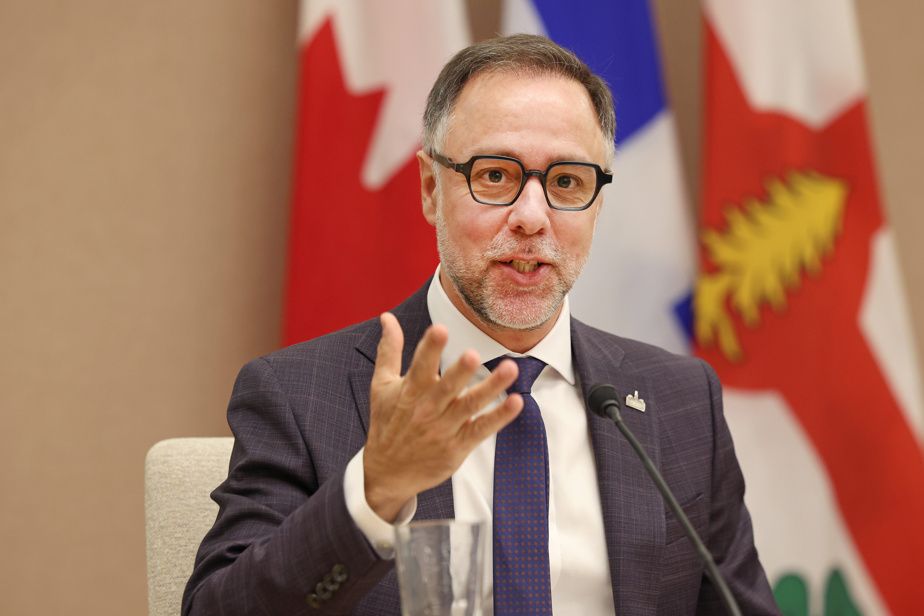
PHOTO ROBERT SKINNER, THE PRESS
The president of the executive committee of the City of Montreal, Luc Rabouin
“We are going to put staff where it is necessary, and we are going to reduce them elsewhere. Each time we add resources in sanitation or cleanliness, the equivalent number will be reduced elsewhere,” illustrated the president of the executive committee, Luc Rabouin, specifying that salaries, which took up 45% of expenses in 2017, no longer represent only 38% of the budget.
Montreal will spend 60 million more in 2025 to pay its 28,000 employees, an increase of 2.2% which brings the total to 2.79 billion.
Better snow removal
A rationalization exercise also enabled savings of 29.4 million from next year in various services.
For example, for snow removal, the City will spend 4.2 million less by improving its routes and giving fewer external contracts, instead entrusting the task to its own blue-collar workers. A new group purchasing strategy also makes it possible to free up 5 million.
“This is enormous work which will also benefit future administrations,” noted Mr. Rabouin.
Moving forward, he wants to make processes “more efficient”. “Sometimes we waste energy doing things that aren’t done in the most efficient way possible. »
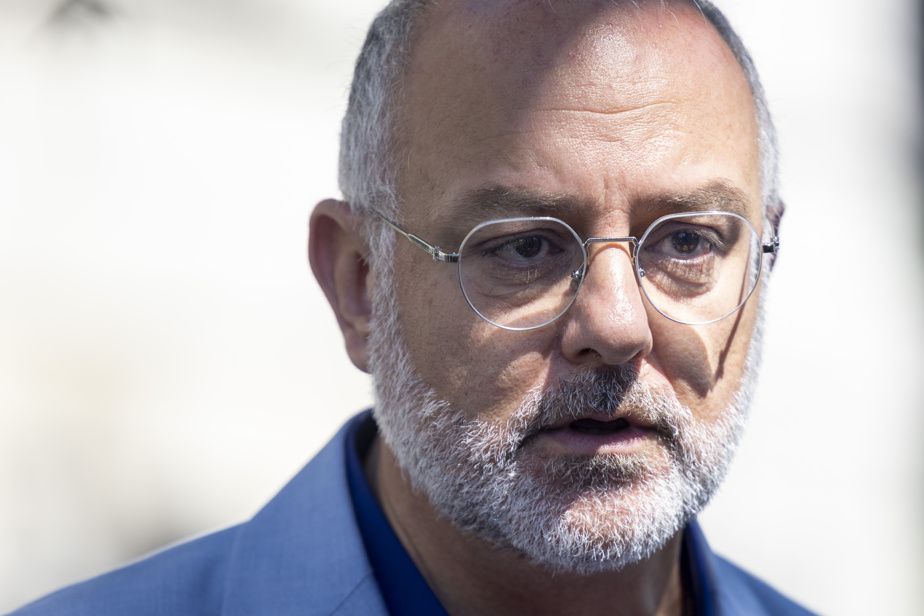
PHOTO PHILIPPE BOIVIN, LA PRESSE ARCHIVES
The leader of Ensemble Montréal, Aref Salem
In opposition, the leader of Ensemble Montréal, Aref Salem, believes that “the house is far from being in order”. “I can understand why the mayor decided to jump ship,” he said.
The elected official notably accuses the Plante administration of having created “a heavy burden on future generations” by spending too much during its last two mandates. “We must not spend more, but spend better. We need a return to sound governance. That’s the major challenge,” he commented.
“Our streets are still like a dump, snow removal is not getting any better. And there is no longer any way to let our children play outside or take the metro safely,” Mr. Salem persisted.
On the human resources side, “we have executives like never before in the City of Montreal, and endless fat,” he lamented, adding that “the services are not keeping up.”
Where is the debt?
In the short term, Montreal will spend 16% of its 2025 budget to repay its debt which, as of December 31, 2023, amounted to 6.7 billion. From 2025 to 2027, the City plans to pay 1.7 billion to repay its debt: 475 million in 2025, 582 million in 2026 and 689 million in 2027. In 2025 alone, Montreal will pay 1.1 billion in interest on its loans, a an amount which represents 107% of its income. To limit the debt ratio in the coming years, the City is committed to stabilizing the capital expenditure program at expenditures of 2 billion per year.


